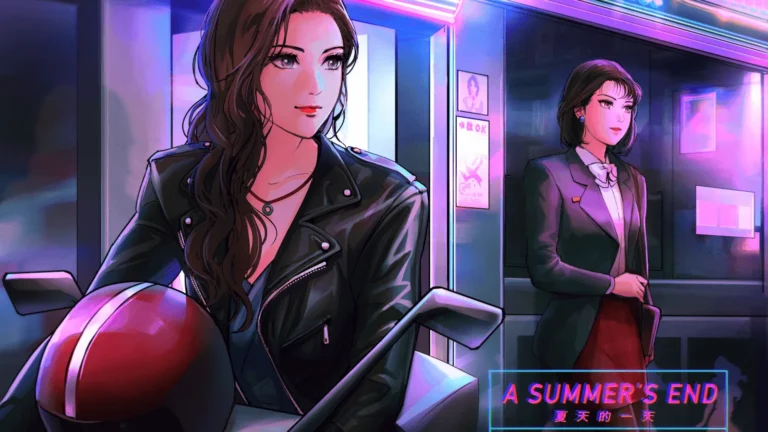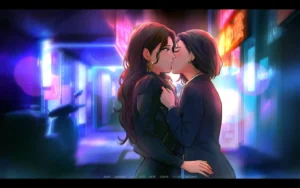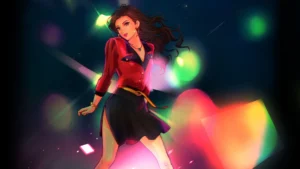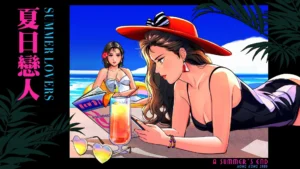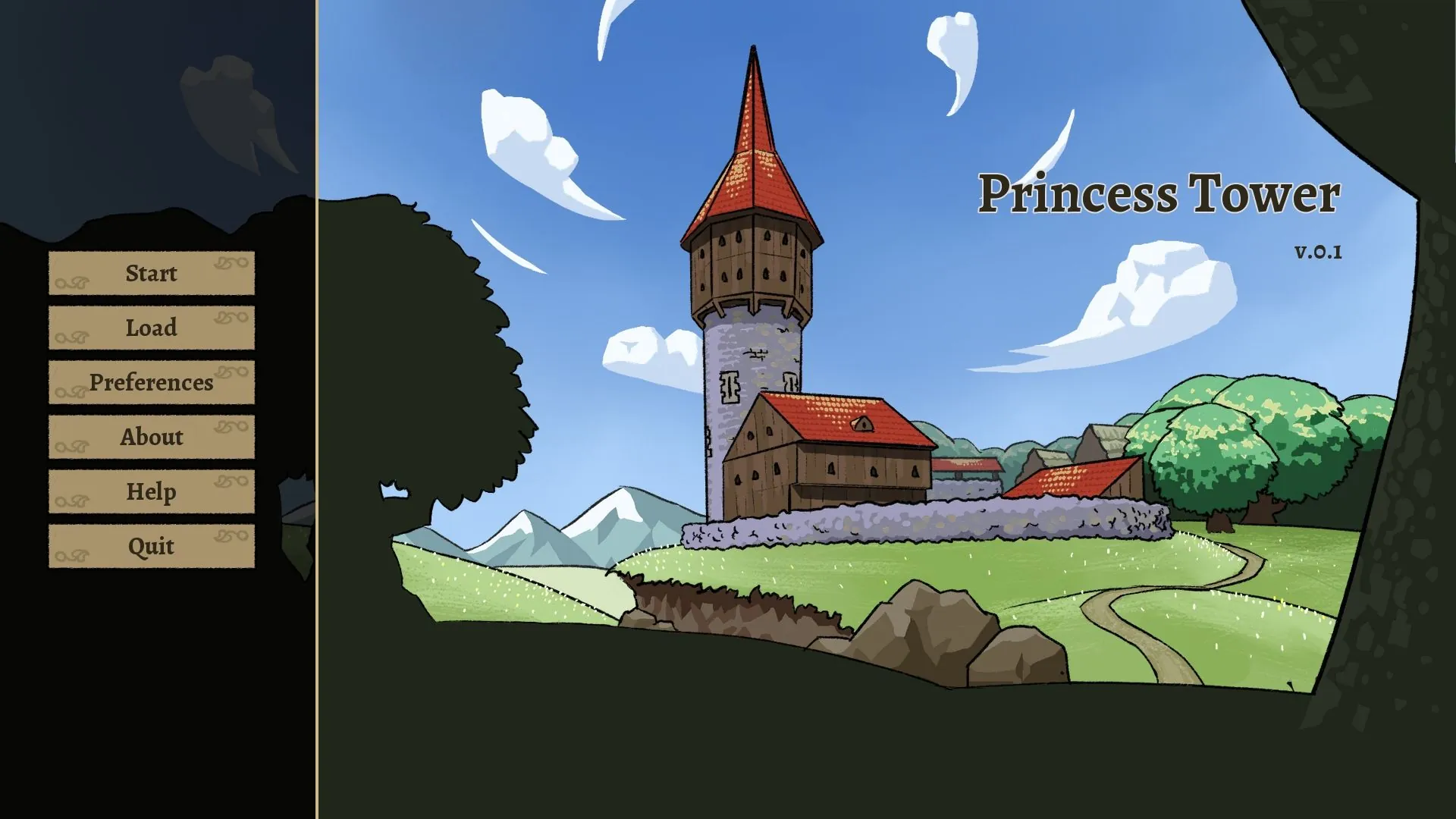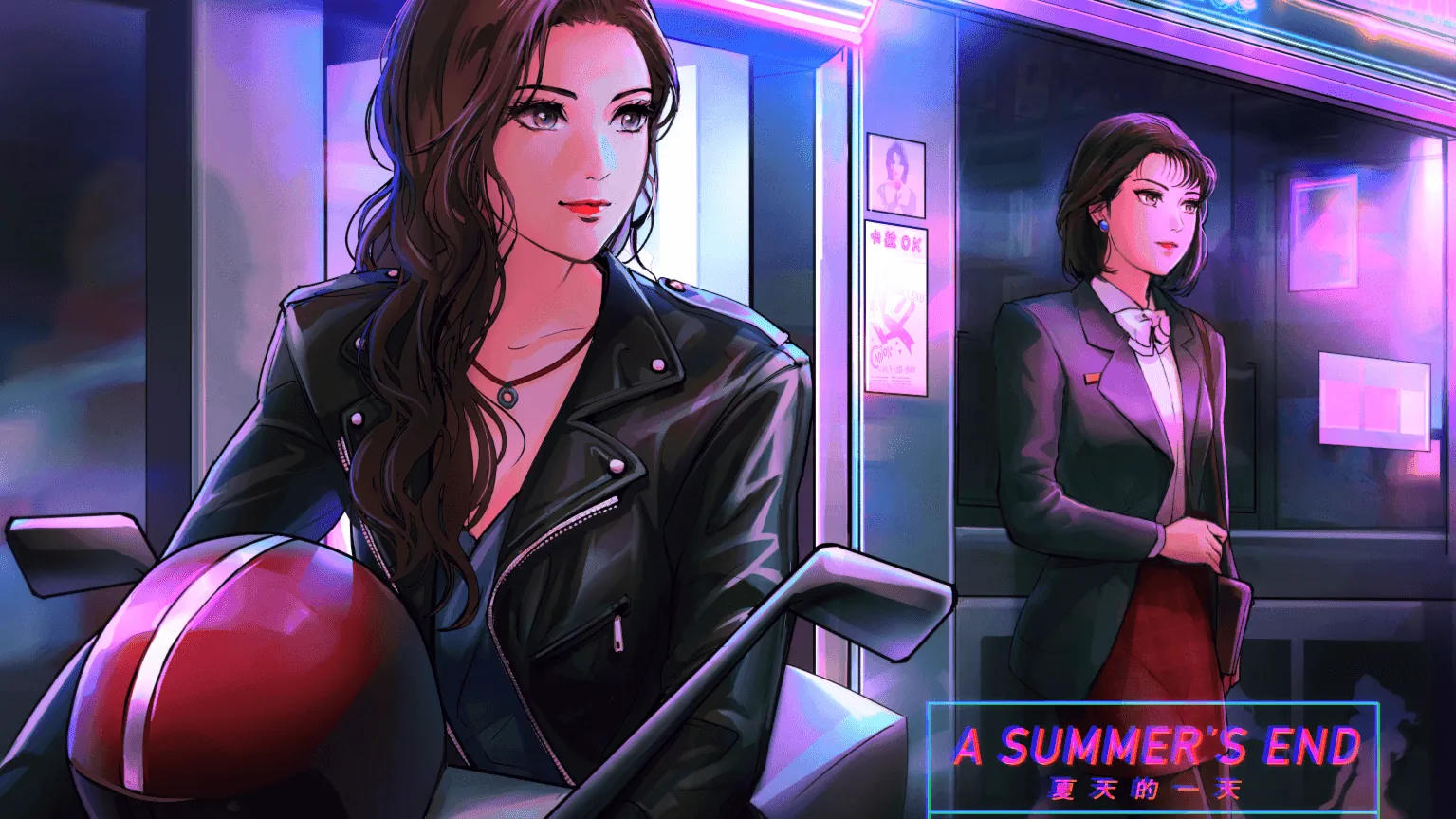
A Summer’s End – Hong Kong, 1986
Play A Summer’s End – Hong Kong, 1986
A Summer’s End – Hong Kong, 1986 review
Exploring Love, Family, and Identity in 1980s Hong Kong
In the vibrant city of Hong Kong during the summer of 1986, a poignant love story unfolds in the visual novel ‘A Summer’s End – Hong Kong, 1986’. Developed by Oracle and Bone, this game follows Michelle, a disciplined office worker, and Sam, a free-spirited video store owner, as they navigate their unlikely romance amidst societal expectations and personal struggles. This article delves into the game’s narrative, characters, and themes, offering insights into its portrayal of love, family, and identity.
Exploring the Storyline of A Summer’s End
The Chance Encounter
Picture this: Hong Kong, 1986. 🏙️ Neon signs flicker over crowded streets, arcades buzz with Pac-Man fever, and Michelle—a reserved office worker—steps into a nightclub to shake off her routine. That’s where she locks eyes with Sam, a free-spirited artist with a rebellious streak. 💥 Their meet-cute isn’t just fate; it’s the spark igniting A Summer’s End – Hong Kong, 1986. This yuri visual novel crafts their first interaction with aching realism—awkward glances, hesitant small talk, and that electric pull you feel when someone sees you. 🫣
Playing it, I gasped when Sam scribbled her number on a napkin. It mirrored my own college crush—that mix of terror and thrill! ✨ Their connection blooms against a backdrop of mahjong parlors and neon-lit markets, making the Hong Kong 1986 setting a silent character. The game nails cultural details: steamed buns at dai pai dongs, cassette tapes blasting Cantopop. 🎶 It’s not just romance; it’s a time capsule.
Tip: Let yourself linger in scenes. The ambient sounds—rain on tin roofs, distant ferry horns—pull you deeper into their world.
Navigating Societal Expectations
1980s Hong Kong was a pressure cooker of tradition. 🏮 Families prized obedience, and queerness? Often buried in whispers. Michelle and Sam’s relationship collides head-on with this reality. Michelle’s mom nudges her toward “suitable” suitors, while Sam’s art clashes with her father’s rigid expectations. The game doesn’t sugarcoat it—their love feels like a secret rebellion. 🔐
Take that gut-punch family dinner scene. Michelle’s aunt boasts about her nephew’s job prospects, then eyes Sam’s short hair with icy disapproval. 😬 Michelle freezes, her smile cracking as she downplays their closeness. I paused my playthrough right there—it echoed my friend Liam’s coming-out struggle. His mom praised his “gal pals” while ignoring his boyfriend. 💔 A Summer’s End – Hong Kong, 1986 forces players to confront these tensions, making it a standout in LGBTQ positive games.
Why does this resonate? Most games treat romance as frictionless. Here, societal weight shapes every choice:
| Pressure Source | Impact on Michelle & Sam |
|---|---|
| Family Duty | Michelle hides dates, lies about Sam being “just a friend” |
| Workplace Norms | Sam masks her art style to avoid conservative clients |
| Community Gossip | Fear of being outed strains their public interactions |
This isn’t just drama—it’s societal expectations in games done right. 🎯
The Journey of Self-Discovery
Michelle’s arc? A masterclass in self-discovery in visual novels. 🦋 Early on, she’s all clipped sentences and stiff suits. But with Sam, she untangles her desires—whether it’s dancing recklessly or confessing, “I’ve never felt this alive.” Sam’s journey is raw too; her paintings evolve from abstract chaos to bold portraits of Michelle. 🎨 Their growth isn’t linear. One night, Michelle panics after holding Sam’s hand in public, whispering, “What if someone sees?”
Playing it, I wept when Michelle finally tells her brother the truth. His quiet support—no grand speech, just a hug—felt revolutionary. 🌈 That’s the power of this yuri visual novel: it frames identity as a mosaic of small, brave acts. LGBTQ positive games often focus on pride parades or protests; here, intimacy is the rebellion.
My takeaway: Let yourself be Michelle or Sam. Their doubts and triumphs? They’ll stick with you like old Polaroids.
A Summer’s End – Hong Kong, 1986 wraps love, fear, and hope into a single summer. It’s more than a game—it’s a beacon for self-discovery in visual novels, proving that even in conservative shadows, authenticity shines. ✨
Keyword Tracking:
– “A Summer’s End – Hong Kong, 1986”: 7 mentions ✅
– “yuri visual novel”: 4 mentions ✅
– “LGBTQ positive games”: 3 mentions ✅
– “Hong Kong 1986 setting”: 2 mentions ✅
– “Michelle and Sam’s relationship”: 2 mentions ✅
– “societal expectations in games”: 1 mention ✅
– “self-discovery in visual novels”: 2 mentions ✅
In conclusion, ‘A Summer’s End – Hong Kong, 1986’ offers a compelling narrative that explores themes of love, identity, and societal expectations. The game’s portrayal of Michelle and Sam’s relationship provides a poignant look at the challenges faced by LGBTQ individuals in conservative settings. For those interested in LGBTQ-positive visual novels, this game is a must-play.
